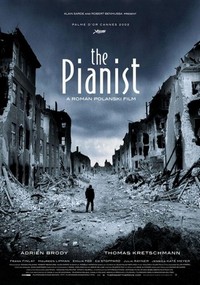
The Pianist (2002)

Raiting: ![]() 8,5 /10
8,5 /10
Genre: Drama
Director: Roman Polanski
Stars: Adrien Brody, Thomas Kretschmann and Frank Finlay
Country: France / Poland / Germany / United Kingdom / United States
Release date: 17 September 2002
Length: 150 minutes




